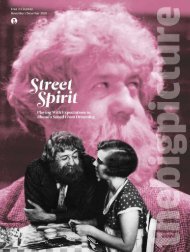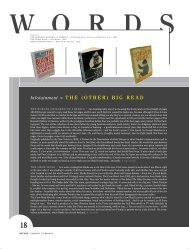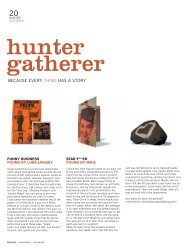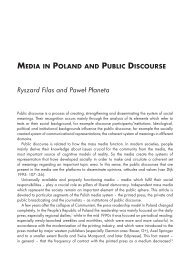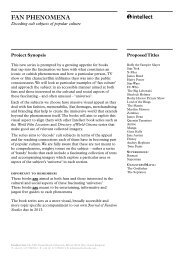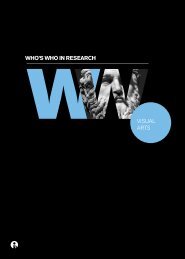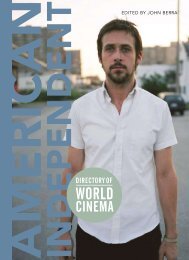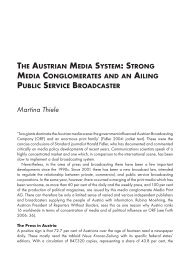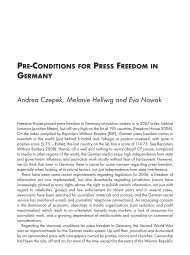Anthem - Intellect
Anthem - Intellect
Anthem - Intellect
Create successful ePaper yourself
Turn your PDF publications into a flip-book with our unique Google optimized e-Paper software.
Signifying Europe<br />
In Irish Millstreet the same year that the EU was established, Enrico Ruggeri—<br />
perhaps in an effort to follow up on Italy’s success three years earlier—only managed<br />
to place ‘Sole D’Europa’ at the twelfth position in the final. Ruggeri, dressed in black<br />
and white, stood alone with the microphone, singing his own emotional and rather<br />
melancholic ballad, accompanied first acoustically and in the end by rock drums and<br />
an electric guitar that gets a brief concluding solo. The Italian lyrics present a poetic<br />
reflection on the effects of war, with rather complex metaphors and a stretched-out<br />
narrative instead of concise political hooks. ‘Sole D’Europa’ means ‘Sun of Europe’,<br />
and the song is like a prayer to the sun to return to a war-stricken and forgotten<br />
Europe. A sad picture is given of a rather hopeless situation where ‘the days never<br />
change’ but also ‘the dreams never change’, and the chorus lines beg the sun to finally<br />
return: ‘Wake up, sun, so we can feel you / Today nobody asks for you / Cover Europe<br />
with light, do you remember where it is? / Come with me, fly with me, warm me up<br />
again.’ An undefined ‘they’ is said to ‘change their uniform and colour / but their tired<br />
souls wait for the sun’, and the final chorus repeats its prayer, but this time collectively:<br />
‘Wake us up, sun, make us understand […] Rise for us, come up with us, warm us up<br />
again.’ 436 There are many echoes here of the Schuman Declaration and even of Schiller<br />
and Beethoven, but the hope for a redeeming sun as a dues-ex-machina has a religious<br />
feel that differs from the dominant political tradition where Europe’s awakening is<br />
instead supposed to derive from its own determination.<br />
A kind of religious awakening spirit returned to Tallin, Estonia in 2002 when Rosa<br />
from Spain performed ‘Europe’s Living a Celebration’, getting an honourable seventh<br />
position in the ESC competition. The song had lyrics by Xasqui Ten and music by<br />
Toni Ten, and sounded like disco with gospel influences, underlined by Rosa’s steady<br />
voice and energetic performance in sweeping black dress, and with five backing<br />
vocalists. The song leaves a strong impression, with syncopated call-and-response<br />
polyphony that creates a sense of an ecstatic congregation. The title words in English<br />
are often repeated, but all other words are in Spanish and contain no specific reference<br />
to Europe; instead they celebrate an abstract feeling of togetherness. The ‘I’ feels a<br />
thrill as a new dream (or illusion; the Spanish term can have both meanings) is born<br />
inside her, opening a way from ‘me’ to ‘you’: ‘All together, let us sing / Europe living<br />
a celebration / Our dream—our reality’. The song is about trusting passion and love<br />
in the heart, singing together and never saying goodbye again. This may of course<br />
signify again the unified European peoples, but is abstract enough to also cover more<br />
personal love unions, in the tradition of gospel and soul music where the line between<br />
spiritual and profane love was always thin.<br />
So far, there seems to be two main topics involved in the ESC songs of Europe. One<br />
theme that rings in all the songs is a kind of touristic celebration of Europe’s cultural<br />
density and historical heritage, with urban culture in the traditional western part of the<br />
continent in focus. A second topic that is most prominent since 1990 is a celebratory<br />
192



